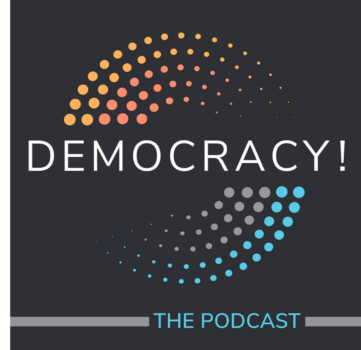To read this issue in its original format, click here.
Dear Colleagues,
This month’s edition of Beyond the Ballot focuses on democratic resilience. This last year, people around the world took to the streets at historic levels to demand their voices be counted in how they are governed. Today, turmoil in several countries continues with an intensity we have not witnessed in decades. The COVID-19 pandemic has magnified pre-existing challenges including the rise of inequality, illiberal populist and nationalist movements, disruptive uses of new technologies, and the residual effects from economic crises. Far more than just a health emergency, the pandemic has also provided anti-democratic actors opportunities to threaten the integrity of political processes and elections, weaken mechanisms for government accountability and oversight, and challenge protections to universal human rights and freedoms.
While both external assaults and internal vulnerabilities have tested democracy’s capacity to deliver effective governance, these challenges also highlight the inherent resilience of government for the people, by the people. As President Biden said in his remarks at the Munich Security Conference this winter, “We must demonstrate that democracies can still deliver for our people in this changed world. That, in my view, is our galvanizing mission.”
And so, our collective efforts to reverse the authoritarian tide, have never been more important.
Yours in Democracy,
Jerry Lavery
Technical Director, The Consortium for Elections and Political Process Strengthening
 This month, CEPPS is launching our new podcast: Democracy! The Podcast which takes an in-depth look at some of the biggest challenges facing the vitality of democracy around the world. In partnership with IFES, IRI, and NDI, with funding from USAID through the Global Elections and Transitions award, this podcast captures first-hand accounts from the most experienced experts working in the democracy, rights, and governance field. Tune in to hear how they tackle real-life problems and help move countries towards a more democratic process for all.
This month, CEPPS is launching our new podcast: Democracy! The Podcast which takes an in-depth look at some of the biggest challenges facing the vitality of democracy around the world. In partnership with IFES, IRI, and NDI, with funding from USAID through the Global Elections and Transitions award, this podcast captures first-hand accounts from the most experienced experts working in the democracy, rights, and governance field. Tune in to hear how they tackle real-life problems and help move countries towards a more democratic process for all.
Check out the podcast page for more information!
This summer, in celebration of democracy, CEPPS has created a playlist of democracy anthems! These songs celebrate the right to democratic freedom and come from all over the world. We hope this playlist might invigorate both your backyard celebrations and your background work music.
Check out the playlist here!
Around the world, CEPPS works alongside local partners to boost their engagement in a more inclusive democratic process. For example, CEPPS works with Documenta in Mexico to address the challenges many persons with disabilities face in both political participation and day-to-day life.
To learn more about Documenta, watch the interview with Disability and Justice Program Officer Diana Sheinbaum.
Last month, CEPPS launched the Overcoming Challenges to Democracy and Governance Programs in Post-Conflict Countries Report. The 2019 Global State of Democracy report found that the quality of democracies around the globe is declining, driven by weakened checks and balances, shrinking civic spaces, erosion of media integrity and insufficient progress in combatting corruption and increasing gender equality. In this context, democracy and governance assistance becomes crucial to identifying and supporting legitimate democratic actors, processes and institutions.
To understand what factors might hinder the capacity of democracy and governance implementers, CEPPS created this report, which aims to better explain these challenges and the strategies which have been applied to overcome them.
Read the full report here and watch the launch event.
Between 2012 and 2020, CEPPS’s core partners – the International Foundation for Electoral Systems (IFES), the International Republican Institute (IRI), and the National Democratic Institute (NDI) – implemented a comprehensive technical assistance program in North Macedonia. This work supported political parties, civil society organizations (CSOs), the parliament, state institutions, and the executive branch in their efforts to build and fortify democratic systems and processes, and to prepare North Macedonians for the next chapter in their democratic trajectory.
CEPPS recently published a series of videos outlining this work in North Macedonia. These videos include testimonials from North Macedonian government officials and CSO partners discussing the design and implementation of tools to increase government transparency, strengthen institutions, and promote accountability.
To learn more, find the partner videos here.
Building the capacity of our partners through effective training that develops the skills needed to strengthen independence plays an important role in ensuring sustainability and fostering democratic resilience. Since the beginning of the GEPT award in June 2016, CEPPS has trained election officials, individuals in political parties, and government officials to support the democratic process.



